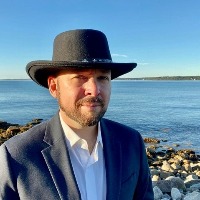University of Otago
Events hub
Keynote speaker
The below information is for the 2020 McKinlay Oration. This information will be updated for the 2021 Oration when it is available.
2020 Mckinlay Oration recording.
The McKinlay Oration is free of charge.
 Dr Robert Huish
Dr Robert Huish
Dr Robert Huish will deliver the keynote address, the McKinlay Oration, at the 2020 OGHI Annual Conference.
Biography
Dr Bob Huish is Associate Professor in International Development Studies at Dalhousie University in Halifax, Nova Scotia. Dr Huish’s research covers a wide range of topics such as global health, social justice, and the consequences of sanctions and embargoes.
His global health work focuses on South-South Cooperation, notably between Cuba and other countries in the global South. He is the Author of Going Where No Doctor Has Gone Before: Cuba’s Place in the Global Health Landscape, and numerous articles on global health, Dr Huish's research looks at how good health is often the product of social justice. Dr Huish held the Ron Lister Visiting Research Fellowship at the University of Otago in Dunedin, New Zealand in 2016, was a Visiting Fellow at McGill University’s Centre for Health and Social Policy in 2017, was a Visiting Fellow at the University of Leipzig in Germany in 2018, was a visiting fellow at the University of Victoria (British Columbia in 2020) and is an Adjunct Professor at Western Sydney University.
Dr Huish teaches several classes on global health at Dalhousie University, and was named one of Canada’s most innovative educators in the Globe and Mail’s “Our Time to Lead” series. He is also the host of the podcast “GDP: The Global Development Primer” which is available on podcasts platforms everywhere.
Dr Huish lives on the shores of Hubbards, Nova Scotia, where he also serves as a volunteer firefighter.
Abstract
Title: The consequences of using ancient methods for modern-day pandemics: Understanding the consequences of stigma from COVID-19.
“Wash your hands, stay at home, and practice social distancing”, are the key public health messages to slow the pandemic. But what if you can’t? These simple guidelines are difficult or impossible for many members of our global society, either because of their roles as essential service workers, or due to exceptional personal circumstances, or simple from a lack of means. Added to this are a wide range of racialized and nationalist stereotypes about “certain people” spreading of COVID-19. This has fuelled prejudice, divided families, led to violence, and ground many economies to a halt. The global community’s pre-vaccine response to COVID-19 has relied on centuries-old public health methods of isolation, embargo and quarantine. These ancient front-line tactics come with ancient problems, notably stigma. Stigma is a public health risk unto itself, and a global health risk more broadly.
In this talk, Dr Robert Huish shares research findings from his current project “The consequences and outcomes of cultural stigma from COVID-19 ordinances”. By identifying which public health orders, and social response fuel stigma, and which ones mitigate it, Dr Huish argues that pandemic planning needs to go beyond “flattening the curve” or “containing the virus”. His work points to examples of public health policies that work to actually “take care of people, rather than fight the virus” during this, and future pandemics.